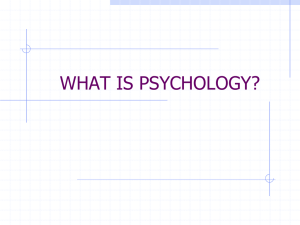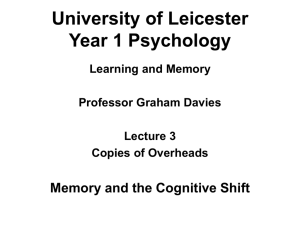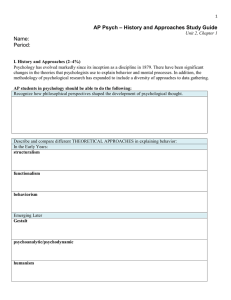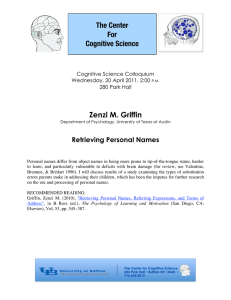LECTURE WEEK 1 SYLLABUS 9/11/2014
advertisement
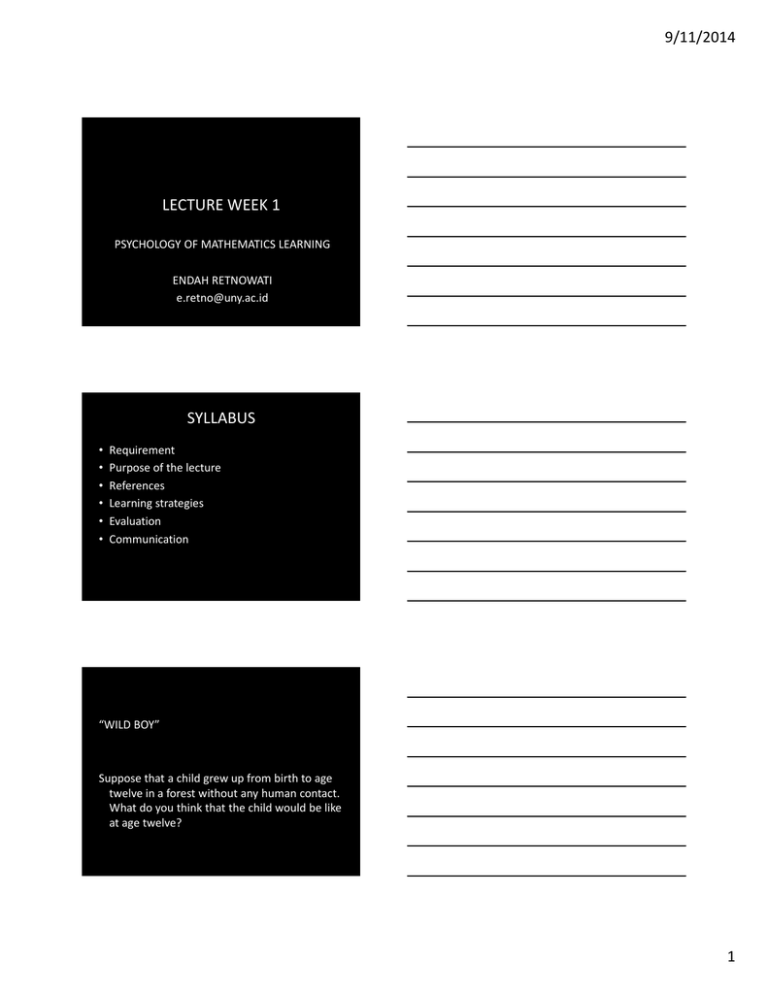
9/11/2014 LECTURE WEEK 1 PSYCHOLOGY OF MATHEMATICS LEARNING ENDAH RETNOWATI e.retno@uny.ac.id SYLLABUS • • • • • • Requirement Purpose of the lecture References Learning strategies Evaluation Communication “WILD BOY” Suppose that a child grew up from birth to age twelve in a forest without any human contact. What do you think that the child would be like at age twelve? 1 9/11/2014 Physically week and unhealthy Unattentive to stimuli Attentive to stimuli Unresponsive to pain Responsive to pain Unresponsive to temperature Responsive to temperature Uninterested to other people Interested to other people Restricted to a very few food tastes Enjoyed a broad variety of food tastes Hadn’t dev eloped a form of oral language Had developed a form of oral language Hadn’t developed a form of gesturing language Had developed a form of gesturing language Hadn’t developed a form of written language Had developed a form of written language Hadn’t developed basic arithmetic skills Had developed basic arithmetic skills Hadn’t developed invented many useful tools Had developed invented many useful tools Wouldn’t be able to learn basic language skills swiftly History of educational psychology • The boy was named Victor who was living in the forest of Aveyron, France • Physician: Dr Jean Marc Itard • A student and an adolescent • In 1800s in Paris • Five years The promise of educational psychology for meaningful learning • • • • Learner-centered Readiness skills – natural social interactions Motivated to learn Developed instructions 2 9/11/2014 Initial questions • How do we know if we have learnt something? • Is there a best way to learn? – How are you going to learn the contents of today’s lesson? • To learn something new there has to be a change somewhere…..where? Memory Test • • • • • • • Hvbrkltwgd ABCDEFGHIJKL….Z XDE, KMW, HKS RAT, BAT, HAT 2000, 1980, 1945, 1990 55465371 17081945 What is Educational Psychology? • It is a science, a branch of psychology that connects to education • Investigates the instructors manipulation of the environment – changes in the learner’s knowledge that arise from an experience • The main goal is understanding and improvement of education 3 9/11/2014 Scope of educational psychology • • • • • • • • • • • Cognitive development Physical development Social and moral development Motivations Intelligence Cognitive processes Learning theories Individual differences Culture Testing, measurement, assessment Classroom teaching Development of Edc Psychology • Associationist era (rote learning) – Stimulus and respond (Trial and error) • (Search: Ebbinghaus, Pavlov) – Rewards or punishment (Law of effect) • (Search: Thorndyke, Skinner) • Cognitive era (meaningful learning) – Constructing knowledge – Social influence into cognition growth What is cognitive psychology? • It is a narrower field • The study of how people perceive, learn, remember and think about information • Is the general dissatisfaction with behaviorism 4 9/11/2014 Cognitive Psych – Psych of learning • In the 1960’s it was argued that behaviorism was flawed because it ignored internal mental processes (i.e. how people think) (See: Bruner’s constructivism, John Dewey, Piaget) • Chomsky’s attack on Skinner where he argued that the mind guides the development of language, rather than environment stimuli. Children were capable of forming novel sentences that could not have been previously reinforced • The raise of information processing as models of human thinking & problem solving (Newell & Simon, 1972) Behaviorist approach on learning process Instructional Manipulation Outcome Performance Cognitive approach on learning process Instructional manipulation Learning process Learning outcomes Outcome Performance Learners characteristics 5 9/11/2014 For you to do: • Summarise the difference between associationism & cognitivism • Explain the meaning and significance of cognitive psychology for mathematics learning Please STUDY HARD NOT hardly study 6
